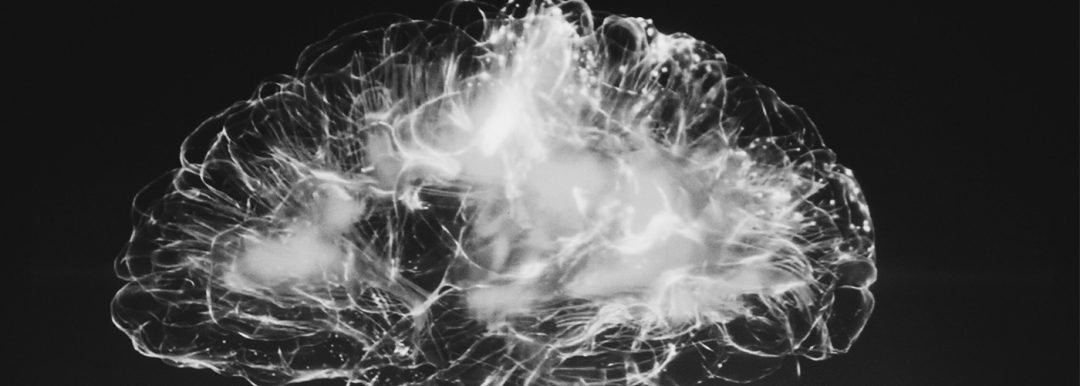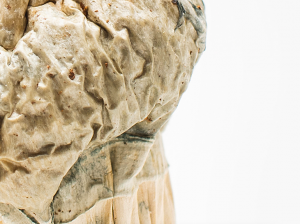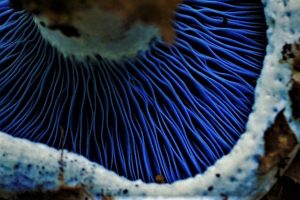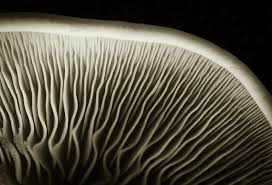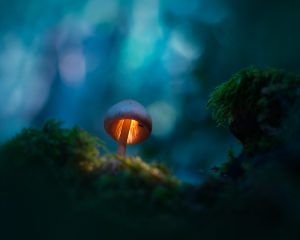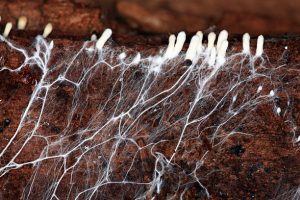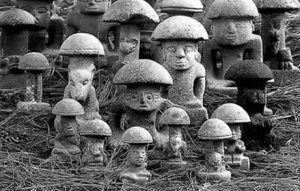Preliminary studies and anecdotal evidence of the mushroom benefits of psilocybin demonstrate 3 interconnected areas of efficacy. Neuroplasticity, neurogenesis, and ‘psychedelic experience’ occasioned neurological improvements all seem to work together in benefiting study patients. Through these 3 categories we will assess the top 10 benefits of psilocybin and magic mushrooms and the science behind them.
Mushroom Benefits 1: Neuroplasticity
Is the ability for neurons to form and reorganize synaptic connections in the brain. These action potentials (nerve impulses) are transmitted messages across a synapse to neighbouring cells. The creation of more synaptic connections throughout the brain implicates the ability for the brain to ‘unlearn’ old habits while creating new connections with greater creative potential. People suffering from depression, post-traumatic stress disorder, and other mood disorders often exhibit fewer synaptic connections, or have fewer overall neurons functioning within specific parts of the brain.
Psilocybin has been shown to allow for neurons to communicate through connections not previously used, which increases cross-communication with different parts of the brain resulting in more flexible and creative thought potentials.
The vast majority of neurogenesis happens before we are born, and thus changes within the adult brain, which becomes fairly static in regards to its ability to generate new neuron growth and novel communication channels. This static structure of the neurons in the brain creates patterns, learned behaviours, and bad habits; neuroplasticity on the other hand, enables the brain to form new connections, patterns, and behaviors, therefore breaking the old habits.
Hypotheses are being studied in which psilocybin “acutely destabilizes local brain network hubs and global network connectivity via amplification of neuronal avalanches, providing the occasion for brain network ‘resetting’ after the acute effects have resolved.”(Nichols, Johnson, Nichols,.2017).This “resetting” is like a post neuronal avalanches, and allows for new neural pathways (neuroplasticity) to form in the brain, generating novel potential for brain improvements and evolutions.
Benefits of Neuroplasticity
1. Enhanced Learning
The creation of new pathways throughout the brain — more neuron connections, new neurons, stronger neuron connections, and better neuron response — are all ways in which psilocybin aids in the neuroplasticity of the brain. New pathways for excelling learned behaviors and forming strong memories.
2. Divergent Thinking
Divergent thinking is the process of generating creative ideas by exploring numerous and often disparate possible solutions in an emergent cognitive fashion. New neuron connections stimulated by psilocybin through different parts of the brain allow for more novel and creative solutions.
3. Flow-State (DMN Suppression)
The Default Mode Network (DMN) is a network of interacting brain regions. The DMN is shown to be activated when recalling information, thinking about the future, daydreaming, thinking of the self (ego), and thinking of others. Recent research has shown that an overactive DMN is often present in depressed people.
When performing certain goal-orientated tasks, the DMN has shown to be deactivated. Post psilocybin doses, subjects report heightened ability to get into ‘flow-states’ where the DMN is deactivated, and creative, focus driven tasks are heightened and prolonged.
4. Cessation Habits (nicotine, alcohol, etc.)
Early studies with psychoactive compounds in the 1960’s were centered around their purposed effects in treating alcohol and nicotine addictions with very high degrees of success (Sherwood et al., 1962). With the resurgence of new energy and institutional support, scientists are again finding very strong evidence that compounds like psilocybin and LSD are very effective at combatting substance abuse.
In a study done over a 6 year period and published in 2015, psilocybin was shown to have strong efficacy in a 15 participant trial in smoking cessation.
“Participants reported gaining vivid insights into self-identity and reasons for smoking from their psilocybin sessions. Experiences of interconnectedness, awe, and curiosity persisted beyond the duration of acute drug effects. Participants emphasised that the content of psilocybin experiences overshadowed any short-term withdrawal symptoms.”
Results of the study showed that “12 of the 15 participants (80%) were biologically confirmed as smoke-free at a 6 month follow-up” (Johnson et al., 2014). (Michael P. Bogenschutz, Matthew W. Johnson, 2015)
5. Depression Relief
For those suffering mood and anxiety disorders studies have shown that psilocybin has the ability to increase “emotional and brain plasticity”, increases in functional connectivity throughout the brain, in addition to profoundly reducing, “processing of negative affective stimuli”, which in turn increases overall positive long-lasting mood in humans.
A study a Johns Hopkins, led by Frederick S. Barrett, tested 12 healthy subjects in an open-label assessment 1-day before, 1-week after, and 1-month after a receiving a 25 mg/70 kg dose of psilocybin, “to test the hypothesis that psilocybin administration leads to enduring changes in affect and neural correlates of affect.”
Results from fMRI imaging showed that psilocybin, when acting within the brain as an agonist to 2A serotonin receptors, “acutely reduces amygdala activity and connectivity when viewing negative emotional facial expressions.”
The amygdala, a pair of almond-shaped clusters of nuclei located within the temporal lobe with the primary purpose of processing memory, decision making, and emotional responses, has been shown to track the salience of stimuli within an environment and is thus, “highly responsive to negative emotional stimuli”. A highly active amygdala – reacting to negative affective stimuli – is, “implicated in the pathophysiology of depression,” therefor, psilocybin’s acute effect of reducing the amygdala activity has incredible implications in treating mood disorders.
[REF] Barrett, FS, Doss, MK, Sepeda ND, Pekar JJ, & Griffiths RR. Emotions and brain function are altered up to one month after a single high dose of psilocybin. Scientific Reports, 10, 1-14.
[Ref 1]
[Ref 2]
[REF 3] (Mansvelder et al, 2019)
[REF 4] (Keller and Just, 2016)
Mushroom Benefits 2: Neurogenesis
Neurogenesis is the growth of neurons (brain cells), and while it was once thought that after birth it was only a matter of destroying brain cells and never making them, it is now thought that a few very specific areas with strict limitations, can actually grow neurons in an adult brain. One such area the Dentate Gyrus which plays a critical role in learning and memory. Found within the hippocampus, the Dentate Gyrus acts as a gateway for for the induction and propagation of sensory data to form “memories that bind stimuli together”.
The ramifications that this area allows for new neurons to form steers scientists to believe that we may be able to use neurogenesis in an attempt to form new behaviors and to form stronger memories.
Additionally, studies have shown that patients suffering sever depression had statistically significant 19% smaller hippocampus volume compared to healthy subjects. Common antidepressants which have been shown to be effective have also demonstrated increased neurogenesis. While these early studies seem very compelling, much more investigation needs to be considered.
6. Stronger Memory Creation
The potential for new neurons to be formed in the dentate gyrus of the adult brain where sensory data is turned into memories, demonstrates the possibility of forming stronger and more organized memories with increased communication across more synapses between nerve cells.
7. PTSD
Using rabbits and mice, studies on both LSD (at higher doses) and psilocybin (at lower doses) have demonstrated an enhanced rate of learning a new conditioned behavior. How is this relevant to PTSD and neurogenesis? Because neurogenesis in the hippocampus could play a part of the acquisition of new behaviors, psychedelic compounds may ‘erase’ pattern recognition through newly formed neurons and neural pathways. Hence the ability for a mouse to ‘erase’ a traumatic event and learn a new conditioned behavior in its place. While very few studies have been done in this area, the implications are very encouraging that in conjunction with cognitive behavioral therapy, psilocybin, or other psychedelic compounds may provide very strong therapeutics for PTSD.
[REF 5]
Mushroom Benefits 3: Experience Related Benefits
8. Empathy
Psychedelic experiences have often anecdotally demonstrated that having a “mystical” or “God-like” experience leaves the subject feeling long-term increased empathy in conjunction with more holistic view of the Universe and its complex web of interconnectivity. When a person has a greater respect and understanding for nature and their awe-inspiring place within it, they overwhelmingly reassess their place within the Universe and society as a whole. Psilocybin inflicts a feeling of “one-ness” not only between all people, but also politically with the Universe.
9. Connection to Nature
Post-Psilocybin, many subjects feel an immense renewed connection to nature, due in part to their often times “mystical” experiences. Humans across the globe have utilized the power of psilocybin, often in ceremonial circumstances, to commune with nature and restructure their place within it. R. Gordon Wasson, the first westerner to experience psilocybin in the modern world, reported a connection to nature through visions, “I saw river estuaries, pellucid water flowing through an endless expanse of reeds down to a measureless sea, all by the pastel light of a horizontal sun.” These transformative ‘visions’ of nature provide long lasting changes in the way we see, experience, and appreciate nature.
10. Equanimity
Numerous studies are being conducted on the therapeutic value of psilocybin producing substantial and sustained decreases in depression and anxiety in patients with life-threatening cancers and terminal diseases. After as little as 1 high dose of psilocybin, many patients “lose their fear of dying,” and gain a greater and more holistic understanding of life. This newfound equanimity is a profound tool for all those who seek calm and solace within the chaos and suffering life.
*BONUS* 11. Enhanced Creativity
With increased communication throughout the brain, and resolve of “brain loops”, psilocybin provides the potential for the brain to form new and focused ways of creative thinking and problem solving. In addition to other benefits such as “flow-state” and “Cognitive Connectivity”, creativity becomes a powerful default byproduct. This enhanced creativity is a major reason people in varied creative fields picked up early on the experimentation of psilocybin, from the original titans of silicone valley through to the microdosing bedroom coders, inventors, musicians, and artists of today.


